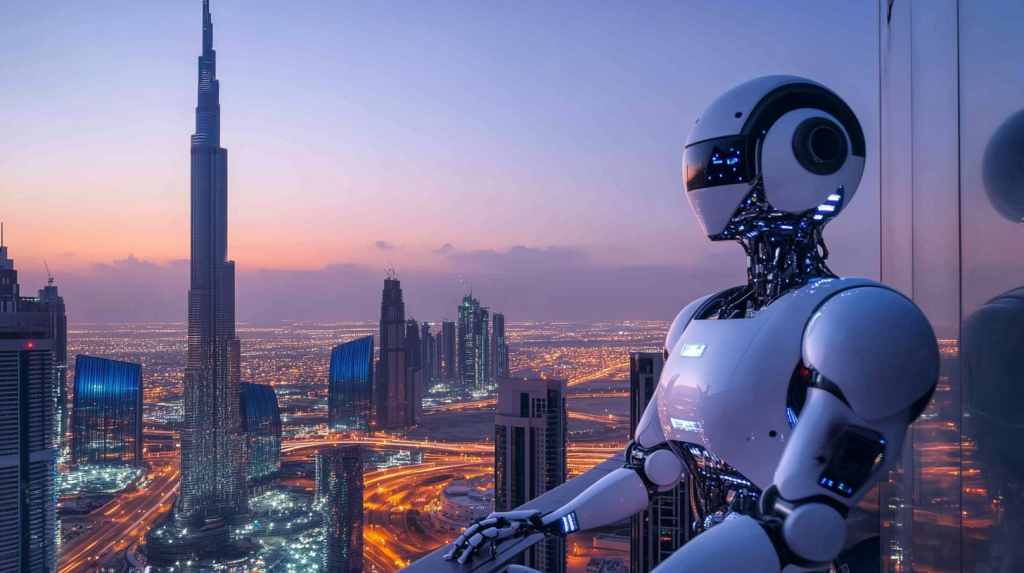A recent online trend has captured the attention of millions worldwide: AI-powered apps that transform regular selfies into beautiful, animated artwork. Many of these apps mimic the famous Studio Ghibli style, turning users into cartoon versions of themselves. While the results are fun and creative, experts in the United Arab Emirates are urging the public to think twice before uploading their photos to such platforms.
According to top UAE cybersecurity professionals, these AI art apps may pose serious threats to privacy. They warn that the excitement surrounding these creative tools might blind users to the hidden risks they carry—especially when it comes to how personal data is collected, stored, and used.
The Temptation of AI Art
AI-powered art generators have exploded in popularity. With just a few taps, users can upload selfies and receive stunning cartoon or animated portraits in seconds. Social media platforms like Instagram, TikTok, and Twitter are flooded with users proudly sharing their AI art. The visual appeal and easy usability of these apps are the driving force behind their success.

However, behind the fun lies a deeper issue: users often grant these apps access to their photo libraries, camera, and even contact lists without realizing the extent of the permissions they’re allowing. Once a photo is uploaded, it may be stored on servers in other countries, processed in ways that are not clearly explained, or even used to train more AI models.
UAE’s Cybersecurity Warning
Dr. Mohamed Al Kuwaiti, the Head of Cybersecurity for the UAE Government, has strongly emphasized the risks associated with these AI apps. He explained that while artificial intelligence has many positive uses, users must be cautious when engaging with apps that are not officially verified. The real concern, he said, is how these apps handle and possibly misuse personal data.
“Engaging with unofficial or untrusted applications could lead to the exposure of sensitive personal information,” Dr. Al Kuwaiti warned. He urged users to take their digital safety seriously, highlighting that any app asking for access to photos or personal details should be thoroughly researched before use.
This statement follows growing concerns globally about how AI technology could be misused—especially in countries where data protection laws are not strict. Once your photo is in an app’s system, you have very little control over where it goes or how it is used.
Terms and Conditions: The Hidden Trap
One of the most alarming issues raised by experts is that many people do not read the terms and conditions before using these apps. The fine print in privacy policies often includes broad permissions that allow developers to store, share, or even sell user data to third parties.
In many cases, the apps are free to use because the real product is the user’s data. Developers can make money by selling data to advertisers, marketing companies, or other businesses interested in building facial recognition systems. Some terms also state that once a photo is uploaded, the app has full rights to use it in any way it chooses—without notifying the user.
This is especially risky for users who upload high-resolution selfies, which can be used for facial recognition training or deepfake generation in the wrong hands.
Lookalike Apps and Fake Platforms
Adel Al-Rashed, a well-known Emirati journalist, also expressed concerns about imitation apps—those that closely resemble popular platforms but are designed purely to collect data. These apps may appear on unofficial websites or even sneak onto official app stores with slightly altered names or branding.
According to Al-Rashed, these “copycat” apps often ask for extra permissions that are unnecessary for their function. For example, an app that simply edits photos should not need access to your microphone or call log. Yet many people accept these permissions without thinking, putting themselves at greater risk.
He also pointed out that paid or premium apps tend to have better privacy protections. Developers of such apps usually follow stricter guidelines, as their business models depend on user trust. Free apps, by contrast, often rely on data collection for profit.
Influencers and Experts Call for Digital Awareness
Social media influencer Ibrahim Al-Thahli spoke out on the importance of digital literacy in today’s AI-driven world. He encouraged users—especially younger generations—to think before sharing personal information online. Al-Thahli acknowledged that AI art is entertaining, but he also stressed that understanding how these technologies work is essential for protecting oneself online.
“The UAE has a vision of building a secure and advanced digital economy,” he said. “But for this to happen, people must be aware of the risks they face and take action to stay safe.”
Experts and digital leaders agree that improving public knowledge about cybersecurity is just as important as improving the technology itself. Schools, companies, and governments all have a role to play in educating the public about the responsible use of AI.
How to Stay Safe When Using AI Apps
If you’re tempted to try out an AI art app, you don’t have to avoid them completely—but taking some basic precautions can go a long way in protecting your privacy.
Here are a few safety tips recommended by UAE cybersecurity experts:
- Stick to Official App Stores: Only download apps from trusted platforms like the Apple App Store or Google Play Store.
- Check Reviews and Ratings: Look at user feedback and ratings to see if the app is reliable.
- Read Privacy Policies: Before you upload your photos, take a few minutes to understand what the app plans to do with your data.
- Avoid Uploading Sensitive Content: Refrain from sharing images that could be misused, such as ID cards, documents, or private moments.
- Limit Permissions: Only allow the app to access what it truly needs. Deny access to your contacts, microphone, or location if it’s not required.
- Use a VPN or Privacy Tools: Extra tools can help mask your identity and location while using these services.
- Delete Data After Use: If the app allows, delete your photos and account information once you’re done using it.
Final Thoughts
AI art apps are a fun and creative way to engage with the latest technology, but they’re not without risks. As artificial intelligence becomes more integrated into our daily lives, understanding how it works—and what it takes from us—is more important than ever.
The message from UAE experts is clear: enjoy the innovation, but don’t compromise your privacy. With awareness, caution, and smart usage, it’s possible to benefit from these tools without falling into their hidden traps.
In the end, the most powerful protection you have is your own knowledge. Stay informed, stay alert, and think before you upload.



